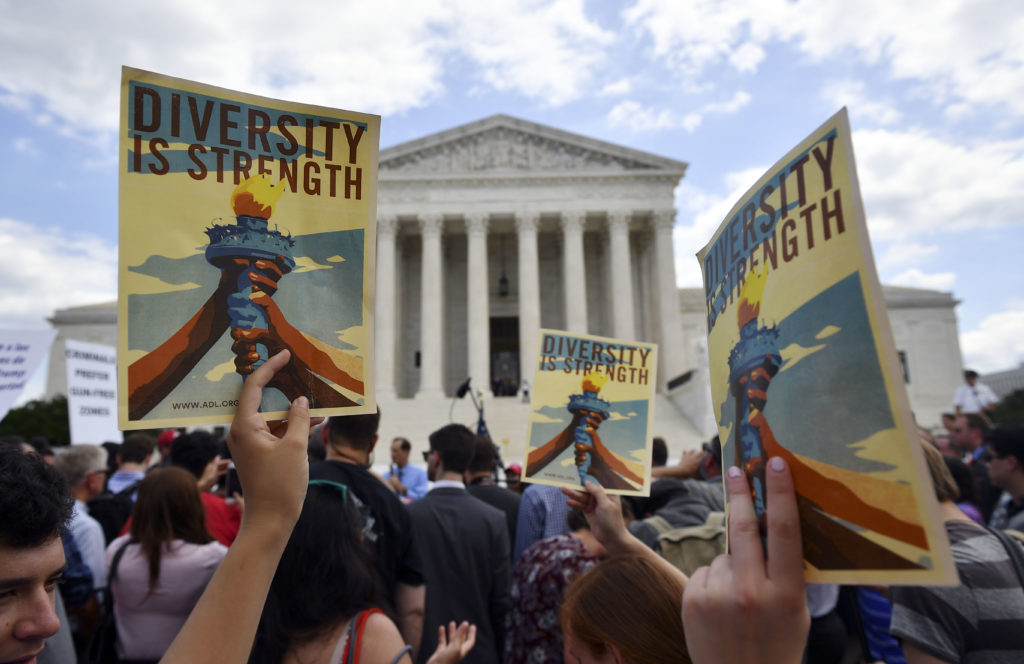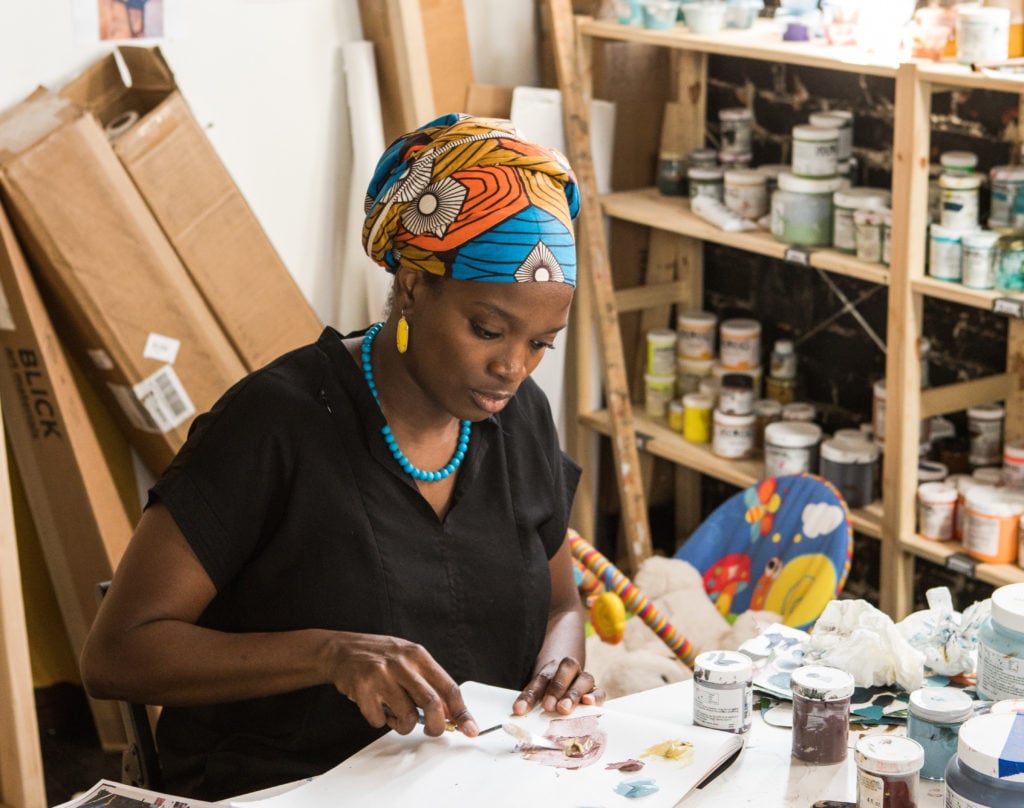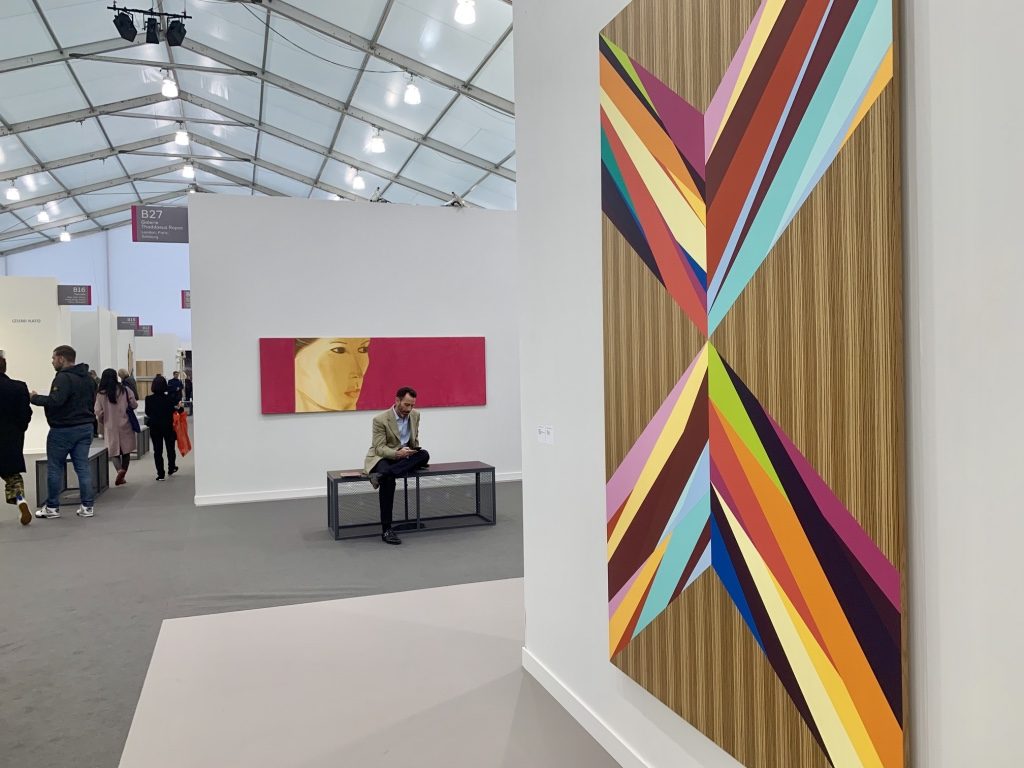Politics
‘It Confirms the Dread I Felt on Election Day’: Artists From Countries Targeted by Trump’s Latest Immigration Ban Speak Out
Nigeria, Myanmar, Eritrea, Kyrgyzstan, Sudan, and Tanzania were all added to the banned list.

Nigeria, Myanmar, Eritrea, Kyrgyzstan, Sudan, and Tanzania were all added to the banned list.

Brian Boucher

President Donald Trump has doubled down on his restrictions to immigration from majority-Muslim nations, issuing a presidential proclamation at the end of January that affects nationals of six countries. Set to take effect February 21, the new restrictions will have a particular impact on artists and institutions with ties to Africa, which is home to four of the newly listed countries.
The addition of Nigeria, Myanmar, Eritrea, Kyrgyzstan, Sudan, and Tanzania to the list nearly doubles the number of countries affected since Trump’s original executive order, issued just days after he took office. That ban inspired nationwide protests and threw immigrant artists’ lives into turmoil.
Cultural professionals who have staked their careers on international exchange are outraged. “These bans are terrible, and they’re inherently racist,” Mark Sabb, senior director of innovation and engagement at San Francisco’s Museum of the African Diaspora, told Artnet News. “They’re the opposite of what we stand for.”
However, since the new restrictions specifically target immigration and not visitation, artists may find that short-term travel is unaffected. “As of now, this new ban doesn’t impact non-immigrant visas,” says Ashley Tucker, a human rights lawyer and director of programs at the New York nonprofit Artistic Freedom Initiative. “This means that artists from countries newly added to the list should still be able to enter the United States to perform and promote their work, and collaborations between artists in the US and the countries newly added to the list are still possible.”

Njideka Akunyili Crosby in her studio in Los Angeles, 2017. Photo: John D. & Catherine T. MacArthur Foundation.
Sometimes referred to as the “Giant of Africa,” Nigeria is the most populous country on the continent, home to some 200 million people. Data from the US Department of State shows that it by far outpaces the other countries on the new list by number of immigrant visas issued in 2018, receiving about 8,000, with citizens of Myanmar, ranking second by population, receiving only about 1,000.
It is the home, by birth or residence, of numerous artists who are also prominent in the US. MacArthur “genius” Njideka Akunyili Crosby, Odili Donald Odita, Toyin Ojih Odutola, Olu Oguibe, and Fatimah Tuggar are native to the West African nation. El Anatsui was born in Ghana but lives in Nigeria, and London-born Yinka Shonibare MBE grew up there. (The country has also produced major musical talents such as Fela Kuti, Femi Kuti, and Burna Boy, not to mention the Nollywood film industry.)
Moreover, as outlined in Artnet News’s 2019 report on Africa’s emerging art markets, Nigeria is home to more black billionaires than any other nation and has one of the world’s greatest concentrations of young people. Lagos, the country’s largest city, hosts commercial galleries as well as the continent’s first contemporary art fair, Art X Lagos, and nonprofits including the Lagos Center for Contemporary Art, praised by El Anatsui as “the biggest thing to happen to the scene.”
“Many of the Trump administration’s decisions—ignoring Puerto Rico in its time of need, slashing refugee numbers, deliberately delaying the refugee process, denying green cards to people who need government assistance, the Muslim- and now extended travel ban, etc.—confirm the dread I felt on election day about a white supremacist being in the seat of power,” Crosby told Artnet News. “Their disdain for people and cultures that are not identified as white lead to de facto white nationalist priorities and policies.”
The effects of Trump’s policies and rhetoric are already taking a toll, says Nigerian artist Gerald Chukwuma, who is planning to come to New York in May for a residency with the 1-54 art fair. He is already dreading his arrival: “You get to the airport and they look at you like you have the plague,” he said. “Can you tell me, after 1999″—the year Nigeria emerged from a military dictatorship—”about any Nigerian citizen who has had anything to do with terrorism?”
The administration says that the six countries have failed to meet security requirements, for example by not having sufficiently sophisticated passport technology or by not sharing information on criminals and those suspected of terrorist ties.
Legal experts aren’t so sure. “This ban doesn’t make any sense,” Emeka Onwezi, principal at Maryland’s OAU Law Group and a co-founder of the Nigerian American Lawyers Association, told Artnet News. “It allows in visitors, who can apply to get a visa within three months. But the people they ban are applying for immigrant visas, which can take 10 years.”
Critics argue that the bans are intended to discriminate on the basis of race and religion. During his presidential campaign, Trump called for “a total and complete shutdown of Muslims entering the United States”; Kyrgyzstan, Nigeria, and Sudan are majority-Muslim, while Eritrea and Tanzania have significant Muslim minorities. Several of the nations affected by the original ban are also majority-Muslim.
“Some of my clients have been waiting for more than 10 years,” said Onwezi. “You’re telling me you cannot vet them in that time?” Noting that the ban was announced amid Trump’s impeachment proceedings, he wondered, “Does he want to make his base happy?”

Work by Odili Donald Odita at right during Frieze New York 2019. Photo by Sarah Cascone.
Artist Odili Donald Odita, who lives in Philadelphia, was just six months old when his family fled Nigeria for the US during the Biafran War, in the 1960s. The artist, who has clearly been thinking about issues of nationality and identity lately in brightly hued and abstract works with titles such as Rocket’s Red Glare and The Other Side of the Wall, says he sees a link between the new proclamation and Trump’s impeachment.
“He’s acquitted and he’s emboldened,” said Odita. He sees alternate-history television shows like Netflix’s The Man in the High Castle, where the Axis powers won, or HBO’s Watchmen, in which white supremacists make war on US police forces, as seeming less and less far-fetched. “This kind of narrative is built out of the reality of the age of Trump. If you can think it, it’s possible.”
Romanian-born Sudanese artist Khalid Albaih pointed out that this isn’t the first time that the US has turned its back on his country in recent years. Sudan’s people rose up in the Arab Spring revolution, he said, braving deadly force and institutionalized mass rape in order to depose the dictator Omar al-Bashir and restore democracy, and yet, he said, the West ignored its people.
“We fight for democracy and it doesn’t matter at all,” he told Artnet News from Copenhagen, where he is an artist in residence with the International Cities of Refuge Network. “The region is left to burn if the Allies are not satisfied with what you’re doing. It doesn’t matter if you die trying to take religious extremism out of the equation, because religious extremists rule the world—if not Muslim extremists, then Judeo-Christian ones.”
Whether in the West, with heads of state like Trump and Boris Johnson, or in the Middle East, with Saudi Arabia’s Crown Prince Mohammad bin Salman, artists see plenty of reason for a dim outlook, with autocrats holding power and international exchange quashed.
The US’s rejection of immigrants, Odita warns, is self-defeating. “Young, entrepreneurial people and science whizzes are going to places like Canada rather than the States,” he said. “That’s the beginning of a very big problem. You’re not going to catch up. It’s situating a decline.”
Albaih warns of far more dire consequences from the US’s abandonment of countries like Sudan. “If we don’t get our economic situation fixed, another revolution is going to happen, and it will be a revolution of the hungry,” he said. Sudan suffers from an inflation rate of 70 percent, and shortages of food and gas are common. “This is how you turn activists with hope into terrorists, because they have no other choice. If they have to, people are going to take up a gun to have food for their families.”